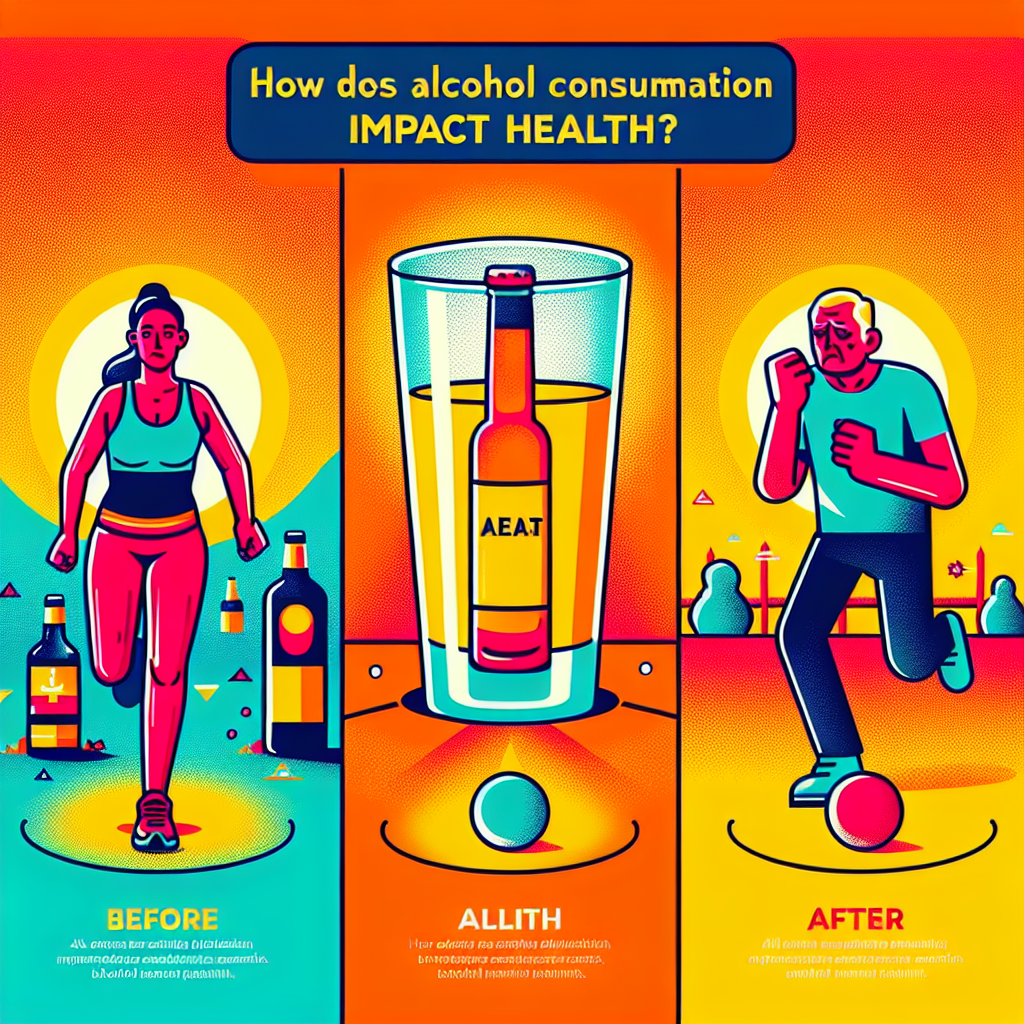Alcohol consumption is a common activity that many people partake in for various reasons, such as socializing, celebrating, or simply to unwind after a long day. While moderate alcohol consumption may have certain health benefits, excessive or regular consumption can have a negative impact on one’s health. In this article, we will explore how alcohol consumption can impact health and what individuals can do to minimize the risks associated with drinking.
Alcohol and its Effects on the Body
Alcohol is a depressant that affects the central nervous system, slowing down brain function and impairing coordination, judgment, and decision-making. When alcohol is consumed, it is absorbed into the bloodstream and distributed throughout the body, affecting various organs and systems.
The liver is responsible for metabolizing alcohol and breaking it down into harmless byproducts. However, excessive alcohol consumption can overwhelm the liver, leading to liver damage and conditions such as fatty liver, alcoholic hepatitis, and cirrhosis. Chronic alcohol abuse is a leading cause of liver disease and can eventually lead to liver failure and death.
Alcohol also has a negative impact on the cardiovascular system. Regular consumption of alcohol can lead to high blood pressure, which increases the risk of heart disease, stroke, and other cardiovascular complications. Alcohol can also weaken the heart muscle, leading to conditions such as cardiomyopathy and arrhythmias.
In addition, alcohol consumption can have a negative impact on the digestive system. Alcohol irritates the lining of the stomach and intestines, leading to conditions such as gastritis, ulcers, and gastrointestinal bleeding. Chronic alcohol abuse can also impair the body’s ability to absorb nutrients, leading to malnutrition and other health problems.
Alcohol abuse can also have a negative impact on mental health. Chronic alcohol abuse is linked to an increased risk of depression, anxiety, and other mental health disorders. Alcohol impairs judgment and can lead to risky behaviors that can have negative consequences on mental health.
Frequently Asked Questions
Q: Is moderate alcohol consumption safe?
A: Moderate alcohol consumption, defined as up to one drink per day for women and up to two drinks per day for men, is generally considered safe for most adults. However, it is important to note that individual tolerance to alcohol varies, and some people may be more sensitive to the effects of alcohol than others. It is important to drink responsibly and know your limits.
Q: What are the long-term effects of alcohol abuse?
A: Long-term alcohol abuse can have a serious impact on one’s health. Chronic alcohol abuse is associated with liver disease, cardiovascular complications, digestive disorders, mental health problems, and an increased risk of certain types of cancer. It can also lead to addiction and have a negative impact on one’s social, professional, and personal life.
Q: How can I reduce the risks associated with alcohol consumption?
A: There are several ways to reduce the risks associated with alcohol consumption. It is important to drink in moderation, know your limits, and avoid binge drinking. Eating a meal before drinking can help slow down the absorption of alcohol and reduce its effects. It is also important to stay hydrated and pace yourself while drinking. If you have a history of alcohol abuse or a family history of alcoholism, it is best to avoid alcohol altogether.
Q: What are the signs of alcohol abuse?
A: The signs of alcohol abuse can vary from person to person, but common signs include drinking alone or in secret, neglecting responsibilities at work or home, experiencing blackouts or memory lapses, and feeling the need to drink to relax or feel normal. If you or someone you know is showing signs of alcohol abuse, it is important to seek help from a healthcare professional or addiction specialist.
In conclusion, while moderate alcohol consumption may have certain health benefits, excessive or regular alcohol consumption can have a negative impact on one’s health. It is important to drink responsibly, know your limits, and seek help if you or someone you know is struggling with alcohol abuse. By taking steps to reduce the risks associated with alcohol consumption, individuals can lead healthier and happier lives.
